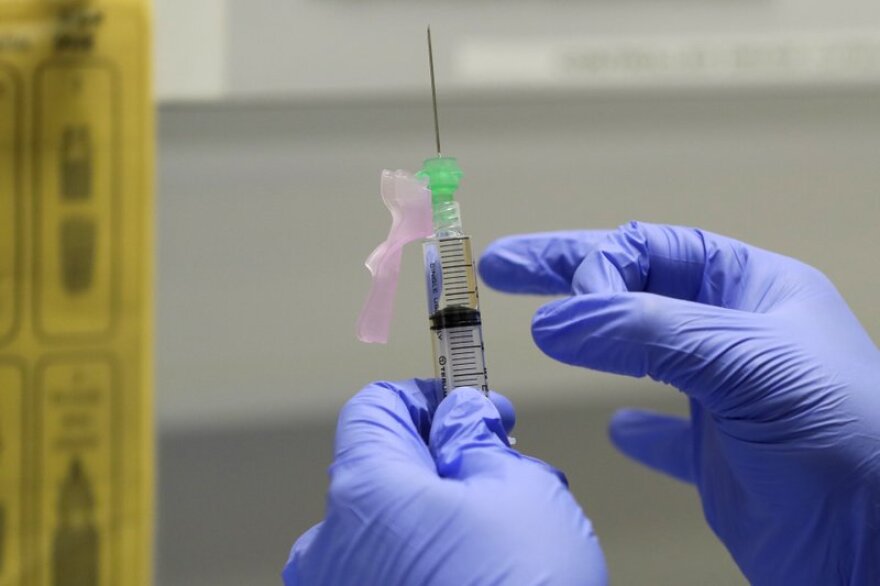So far, Arizona has administered more than a million doses of COVID-19 vaccine. But the state still remains far from the herd immunity that could turn the corner on the pandemic. Even though Coconino County has one of the highest per capita vaccination rates in Arizona, only about 15% of its approximately 143,000-person population has received at least one shot. KNAU’s Ryan Heinsius spoke with the county’s Interim Health and Human Services Director Kim Musselman about the roadblocks to widespread immunization.
Information about booking vaccine appointments can be found on Coconino County's website or by calling (928) 679-7300, or through the Arizona Department of Health Services online or by calling (844) 542-8201.
Ryan Heinsius: Coconino County officials and residents have expressed frustration at what has appeared to be a fairly slow rollout of vaccines. Maybe you can tell me what the biggest challenge for the county in administering doses has been so far.
Kim Musselman: Really, the biggest challenge has been predictability of vaccine availability. That is what is the key driver for how we’re able to schedule appointments, how we’re able to distribute vaccine to our medical partners and providers, and just not having that predictability week to week of how much vaccine we can expect so that appointments can be made to be able to distribute that vaccine.
RH: Can you describe the supply chain? How does that work?
KM: Typically by Wednesday the Arizona Department of Health Services receives from the federal government what is going to be the state’s allocation. And then they push out to the counties the amount of vaccine that we are able to draw down from and order from. And those are decisions that are made at the state level based on the allocation they get and based on all of the different places that they are trying to allocate vaccine to. And we draw down and order everything that’s available that the state pushes to us, and then we determine how to also then allocate doses to our medical partners who are onboarded to provide vaccine. And we’re trying to do that based on population and make sure that we are spreading vaccine throughout Coconino County. So it’s a really a week-to-week ability to schedule out appointments based on what vaccine availability we can count on. So it creates a really difficult and frustrating process for us and our great partners.
RH: So ultimately is this an issue with not enough vaccine being manufactured, or is this just a supply issue that has more to do with glitches in distribution?
KM: I would say that it actually has more to do with available vaccine that’s been manufactured. I know that all of our vaccine companies and providers in particular, Pfizer and Moderna, are working as quickly as possible to manufacture vaccine and have it available. But as everyone knows, that takes time and it wasn’t all made and sitting waiting to just be pushed out. These are things that are ongoing and having to be processed.
RH: Do you expect that efforts in the Biden administration are going to ramp up that production?
KM: Everything we’re hearing is yes to that. And we’re just really waiting to see how that gets actualized. We’re hearing great things about 10 million doses being released and being pushed out over the next three weeks. Again, it’s just really waiting to see what makes its way to the state and then actually gets pushed to us. So we remain hopeful because that’s what we have to do in these times is continue to remain hopeful, but until we actually see it and have some reliability around that we remain cautiously optimistic.
RH: What’s your best guess on when a large chunk of the population in Coconino County might be vaccinated?
KM: Well that is the million-dollar question and guessing these days is a dangerous proposition so I am going to again remain cautiously optimistic that the availability of vaccine coming to our county is going to increase in the coming weeks. And I am hopeful that that is by the end of spring, early summer if things work out that we’re going to hope that the supply distribution, as well as the fact that we’re going to have other vaccines that are currently in trial phases that are going to be going through the process of getting emergency use authorization. So I really think we’re going to see a significant change hopefully in the next month or so of other vaccine types coming online so that we will have a larger supply of vaccine overall that will allow us to expedite how quickly we can move through getting our communities vaccinated.








